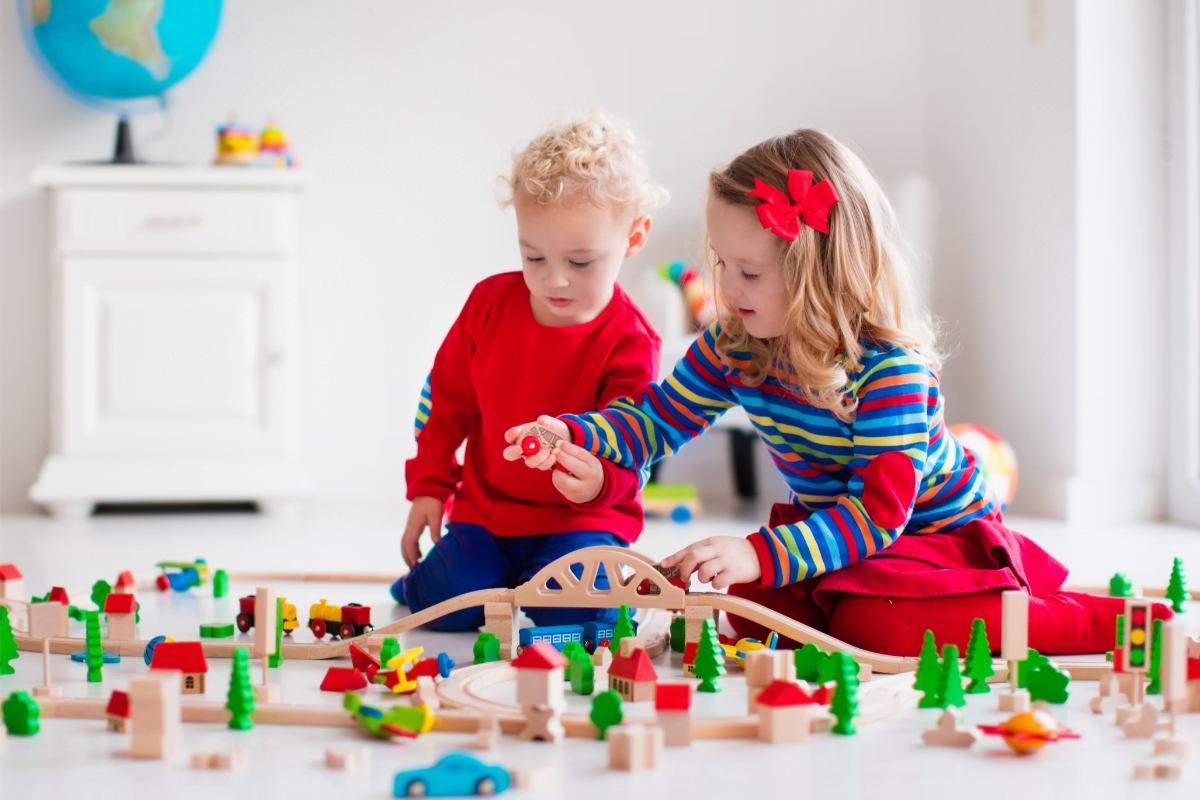Play is an essential aspect of childhood, contributing significantly to a child’s physical, cognitive, and social development. While conventional toys serve as valuable tools for play, they may not always cater to the specific needs of every child, particularly those with motor development challenges. However, by adapting conventional toys, caregivers and educators can create inclusive play experiences that support motor development effectively. In this article, we’ll explore the importance of adapted play and provide practical tips and guidelines for modifying conventional toys to benefit motor development.
Understanding Motor Development
Before delving into adapted play techniques, it’s crucial to understand motor development and its significance. Motor development refers to the progression of movements, coordination, and control of muscles. It encompasses both gross motor skills, involving larger muscle groups for activities like walking and jumping, and fine motor skills, which involve precise movements of smaller muscles, such as those used for grasping objects or writing.
For children, the development of motor skills is vital as it lays the foundation for various everyday tasks and activities. It affects their ability to explore their environment, engage in play, and eventually participate in academic and social endeavors. Consequently, addressing motor development challenges early on can significantly enhance a child’s overall well-being and quality of life.
The Importance of Adapted Play
Adapted play refers to the process of modifying toys, games, and activities to make them accessible and enjoyable for children with diverse abilities and developmental needs. By adapting play materials, caregivers and educators can promote inclusion and ensure that all children have equitable opportunities for play and learning.
One significant benefit of adapted play is its positive impact on motor development. By tailoring toys and activities to suit a child’s specific motor abilities and challenges, adapted play provides opportunities for practice, skill refinement, and progress. Additionally, it fosters independence, confidence, and a sense of achievement as children engage in activities that they might otherwise find difficult or inaccessible.
Practical Tips for Adapting Toys
Now, let’s explore some practical tips and techniques for adapting conventional toys to enhance motor development:
- Choose Appropriate Toys: Select toys that offer opportunities for manipulation, exploration, and physical engagement. Look for toys with different textures, shapes, and sizes to stimulate various senses and motor skills.
- Modify Handles and Grips: For children with limited hand strength or coordination, consider adding larger handles or grips to toys to make them easier to grasp and manipulate. Foam tubing, rubber bands, or bicycle grips can be used to enlarge handles and provide better grip support.
- Adjust Sensory Input: Some children may be sensitive to certain sensory stimuli, such as loud noises or bright lights. Modify toys by reducing sound volume, covering flashing lights, or adding textured materials to minimize sensory overload and create a more comfortable play experience.
- Incorporate Assistive Devices: For children with mobility impairments, incorporate assistive devices such as switch-adapted toys or mobility aids to facilitate interaction and movement. These devices enable children to participate actively in play and develop essential motor skills.
- Encourage Open-Ended Play: Foster creativity and problem-solving skills by encouraging open-ended play with adaptable toys. Provide materials like blocks, clay, or building sets that allow children to experiment, create, and explore at their own pace, promoting fine motor control and spatial awareness.
Case Study: Modifying a Conventional Puzzle
Let’s walk through a step-by-step example of adapting a conventional puzzle to accommodate a child with motor challenges:
- Select a Suitable Puzzle: Choose a puzzle with large, easy-to-grasp pieces and simple designs to minimize frustration and encourage success.
- Enlarge Puzzle Pieces: If necessary, enlarge the puzzle pieces by tracing them onto sturdy cardboard or foam board and cutting them out. This modification makes the pieces easier to handle and manipulate for children with limited dexterity.
- Add Tactile Cues: Enhance the puzzle pieces’ tactile properties by adding textured materials like sandpaper, fabric, or adhesive foam to provide sensory feedback and improve grip.
- Implement Visual Supports: To assist children with visual impairments, incorporate contrasting colors or high-contrast outlines on the puzzle board and pieces to aid identification and alignment.
- Provide Alternative Solutions: Allow flexibility in how the puzzle can be completed, such as providing alternative matching options or allowing pieces to fit in multiple locations. This approach encourages experimentation and problem-solving skills.
Expanding Adapted Play Opportunities
In addition to modifying individual toys, there are several other strategies to expand adapted play opportunities and promote motor development:
- Create Sensory Play Environments: Design sensory-rich environments with a variety of tactile, auditory, and visual experiences. Incorporate sensory bins filled with materials like rice, beans, or water beads, along with textured surfaces, musical instruments, and visual displays to stimulate sensory exploration and motor skills development.
- Facilitate Outdoor Play: Outdoor play offers unique opportunities for gross motor development, spatial awareness, and sensory integration. Set up accessible playground equipment, sensory gardens, or nature trails equipped with adaptive features such as ramps, swings with harnesses, and tactile pathways to accommodate children with diverse abilities.
- Engage in Physical Activities: Encourage participation in physical activities such as yoga, dance, or adapted sports that promote balance, coordination, and strength. Modify movements and equipment as needed to accommodate individual abilities and ensure a safe and enjoyable experience for all participants.
- Collaborate with Therapists: Work closely with occupational therapists, physical therapists, and other healthcare professionals to develop tailored play interventions and strategies that address specific motor development goals. Collaborative efforts between caregivers, educators, and therapists maximize the effectiveness of adapted play interventions and support holistic child development.
- Promote Peer Interaction: Create inclusive play opportunities that facilitate social interaction and peer engagement. Encourage cooperative play, turn-taking, and communication skills through group activities, games, and collaborative projects, fostering empathy, teamwork, and friendships among children of varying abilities.
Continued Support and Advocacy
While adapted play offers numerous benefits for children with motor development challenges, ongoing support and advocacy are essential to ensure inclusive environments and equal opportunities for all. Here are some ways to continue supporting adapted play initiatives:
- Raise Awareness: Educate parents, caregivers, educators, and community members about the importance of adapted play and its positive impact on child development. Share success stories, resources, and practical tips to empower individuals to implement inclusive practices in their homes, schools, and recreational settings.
- Advocate for Inclusive Policies: Advocate for policies and regulations that promote accessibility and inclusion in public spaces, educational institutions, and recreational facilities. Support initiatives to increase funding for adaptive equipment, training programs, and inclusive programming to enhance opportunities for children with motor development challenges.
- Provide Professional Development: Offer professional development opportunities for educators, therapists, and childcare providers to enhance their knowledge and skills in adapting play materials and supporting children with diverse abilities. Training workshops, webinars, and conferences provide valuable resources and networking opportunities for professionals working in inclusive settings.
- Foster Collaboration: Foster collaboration and partnership between stakeholders, including families, schools, healthcare providers, community organizations, and policymakers. By working together towards common goals, we can create environments that celebrate diversity, promote equity, and empower all children to thrive.
Conclusion
Adapted play is a powerful tool for promoting motor development, fostering inclusion, and enriching the lives of children with diverse abilities. By modifying conventional toys, creating accessible environments, and fostering supportive relationships, caregivers and educators can empower children to reach their full potential and participate fully in play and learning experiences. Through continued advocacy, collaboration, and innovation, we can build a more inclusive society where every child has the opportunity to play, learn, and grow.


